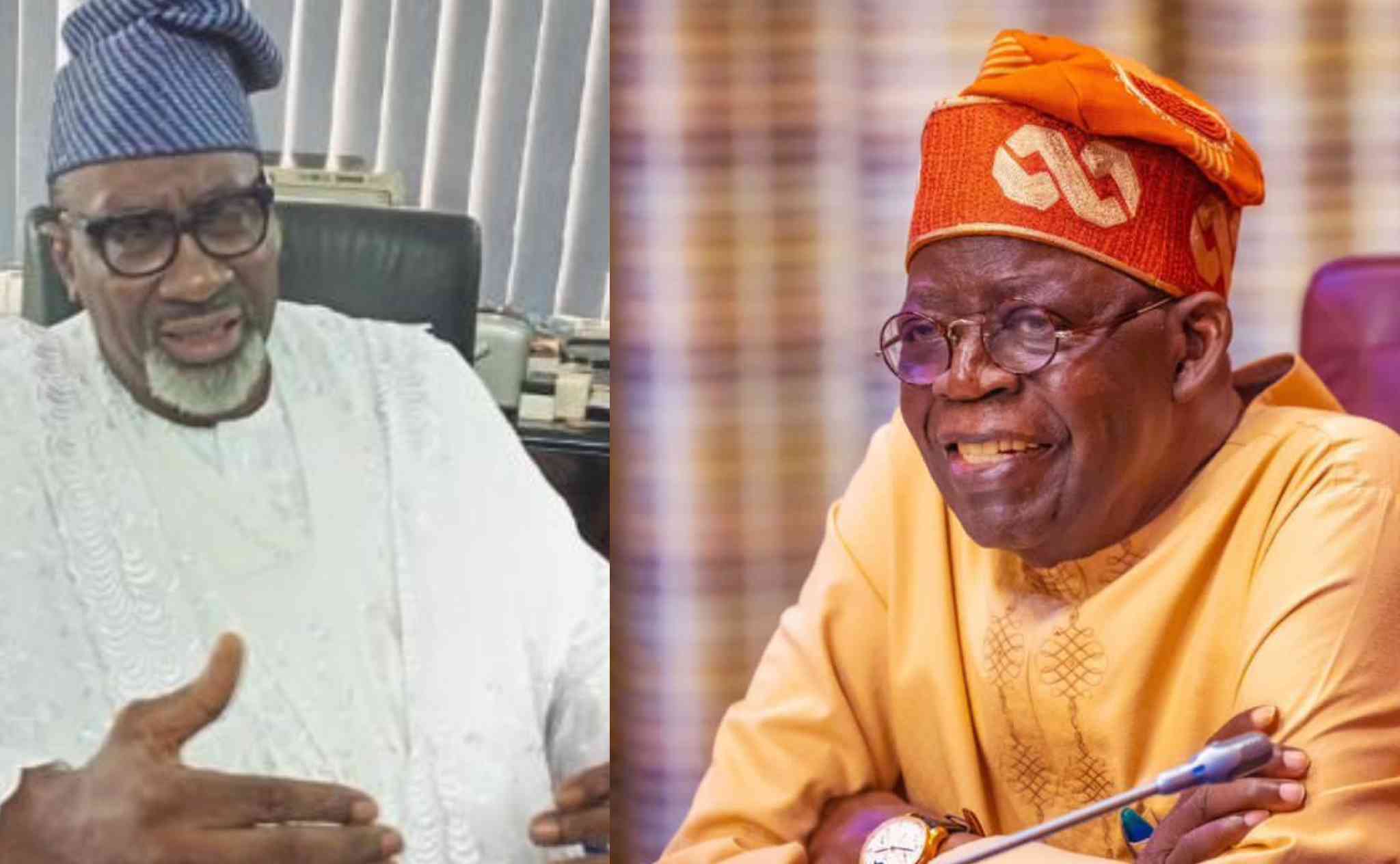Look at the facts before immediately accusing President Tinubu of making life difficult for us.
By – Abayomi Odunowo.
This morning, I awoke to a video sent to me by my chairman that left me feeling upset and livid. The video depicted our leaders engaging in deceitful and wicked actions towards us, the people they are meant to serve. Feeling a sense of outrage, I decided to delve deeper into the matter and ascertain the truth behind the claims made in the video.
Upon further investigation, I uncovered additional facts and obtained more accurate information on the issue at hand. To my surprise, the reality of the situation was far from what was portrayed in the video. It became apparent that certain individuals had deliberately misled and manipulated the facts in order to incite anger and misinformation among the already frustrated populace.
This discovery prompted me to question the motives behind such deceitful actions. Why would people intentionally distort the truth and sow discord among the people they are supposed to lead and protect? It is disheartening to witness such behaviors from those in positions of power and authority.
In a time where transparency and honesty are crucial, it is imperative that we remain vigilant and discerning of the information presented to us. We must not allow ourselves to be swayed by false narratives and must strive to seek the truth in all matters.
The landing cost of Premium Motor Spirit (PMS) in Nigeria is influenced by a variety of factors that contribute to the overall expenses incurred in the procurement and transportation of this essential fuel.
First and foremost, the product cost itself forms a significant portion of the landing cost, as it reflects the price paid to the supplier for acquiring the PMS. Additionally, duty fees imposed by customs on the importation of the product, as well as broker fees for customs clearance and ISF entry, further add to the expenses.
Furthermore, the cost of ocean freight, drayage, finance charges, insurance, packaging and re-packaging fees, as well as taxes all play a crucial role in determining the final landing cost of PMS. Moreover, storage costs must also be taken into consideration, as the longer the product remains in storage, the higher the accumulated expenses.
it is evident that a combination of various components such as product cost, duty, freight charges, and other related expenses collectively contribute to the landing cost of Premium Motor Spirit in Nigeria. Each factor must be carefully managed and accounted for in order to ensure a sustainable and efficient supply chain for this vital commodity.
On July 18, 2024, the Brent crude oil price stood at $85.75 per barrel, with futures for September 2024 on the Intercontinental Exchange (ICE) reaching $85.08 per barrel the day before. Analysts expect Brent crude oil to trade at $86.91 per barrel by the end of the current quarter, based on global macro models and expert predictions.
However, concerns have been raised about the feasibility of achieving N300 petrol prices in Nigeria, citing various factors. A study conducted by senior energy economist Kaase Gbakon in 2023 highlighted the significance of crude oil prices and exchange rates in determining retail petrol prices. Gbakon’s analysis indicated that fluctuations in exchange rates and crude oil prices play a crucial role in the pricing of gasoline, with a particular emphasis on the impact of the exchange rate.
In light of recent developments, including the fluctuating price of Brent Crude, which rose by 0.69% to $80.17 per barrel on Monday, the oil market remains unstable. Factors such as potential production cuts by the Organization of the Petroleum Exporting Countries and strong US economic data have contributed to this volatility, thwarting hopes of an interest rate cut.
Further findings showed the landing cost of petrol rose by 46.8 per cent to an average of N1,026.71 /litre in May 2024, from N545.83 per litre, recorded in the corresponding period of 2023, when Tinubu declared subsidy is gone.
On May 29, 2023, President Bola Tiubu announced the removal of the petrol subsidy upon his resumption into office, but data seen by BusinessDay countered this, revealing a significant increase in the landing cost of petrol.
Before the removal of the petrol subsidy in May 2023, the naira was N460 at the official market but has slumped by over 100 per cent in one year to N1,476.95 as of Monday. At a crude oil price of $86 per barrel, the landing cost of petrol (PMS) in Nigeria is estimated to be around N1,203/liter.
One barrel of crude oil (42 gallons) can produce approximately 158 liters of refined petrol. The additional costs that make up the landing cost of petrol include freight, lightering expenses, port charges, storage, and financing, which total around N45.68 per liter, With the current government-regulated pump price of petrol at N580-N780 per liter, the subsidy cost is around N350.00 per liter.
This results in a daily subsidy of around N21.0 billion based on an estimated daily consumption of 60 million liters.
One of the key points to consider when looking at the cost of refining crude oil into petroleum products, specifically gasoline, is the discrepancy between the landing cost of imported gasoline and the true cost when accounting for the international price of crude oil used in swap deals. While the landing cost of imported gasoline is reported to be N5,133 per liter or $3.54 per gallon, a netback calculation reveals that the true cost of a liter of imported gasoline from swapped crude oil is significantly lower at N1,174.5 per liter or $0.81 per liter.
However, the actual cost of refining one liter of gasoline in Nigeria is estimated to be around N1,174.5 or $0.81 at the current exchange rate. This significant difference between the reported landing cost and the true cost can be attributed to subsidies and other factors that impact the final pump price of gasoline for consumption
Are you feeling the pinch every time you fill up your gas tank in Nigeria? You’re not alone. The landing cost of one liter of petrol has skyrocketed to N1,117 due to various economic factors, primarily the foreign exchange crisis. This means that the cost of importing petrol into the country has surged, leading to higher prices at the pump.
Just last year in October, the landing cost was a more manageable N720/liter. However, with the naira losing value against the US dollar, the cost has ballooned, now estimated at N1,009/liter. When you add in additional expenses like port charges and distribution fees, the total landing cost could reach as high as N1,203/liter.
With pump prices currently sitting at a range of N617-N700/liter, it’s clear that the government is subsidizing the cost of petrol to shield consumers from the full impact of the increased landing cost. How long this can be sustained remains to be seen, but for now, be prepared to pay more for your fuel.
Otunba Abdulfalil Abayomi Odunowo
National Chairman AATSG
Mobile: +2349053535322
Follow us on our WhatsApp Channel





